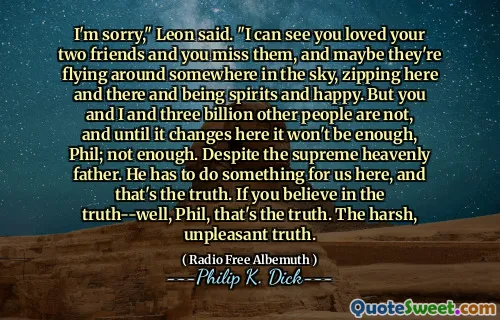
... there is nothing unforgivable and there are no secrets before an all - knowing merciful God.
This profound statement challenges the human tendency to cast judgment and harbor secrets. It underscores the boundless mercy and omniscience of God, suggesting that no wrongdoing is beyond forgiveness and that divine understanding surpasses human limitations. Such a perspective encourages individuals to approach their faults and others' imperfections with compassion and humility. It invites us to recognize that our perceived mistakes and hidden truths are known to a higher power, and instead of shame or secrecy, there should be openness rooted in divine mercy.
In a world often marked by judgment and the desire to conceal our flaws, this quote reminds us of the transformative power of forgiveness. It posits that divine mercy embodies an unconditional acceptance that surpasses our own notions of right and wrong. Embracing this idea can foster a sense of peace, knowing that no matter how grave our secrets or mistakes seem, they are not beyond the reach of divine grace.
Furthermore, this perspective serves as a clarion call to extend similar mercy to others. Instead of condemning or hiding faults, it challenges us to view each person through the lens of divine understanding. The notion that God knows all secrets yet remains merciful reflects the importance of mercy in human relationships. It suggests that forgiveness is a divine attribute that should inspire us to exude patience and compassion.
Ultimately, this quote encourages surrender—trusting in a God's all-encompassing mercy and recognizing that vulnerability can lead to genuine liberation. It inspires a faith that no secret, no fault, is too great for divine forgiveness, and invites believers to navigate life with hope, humility, and grace.






